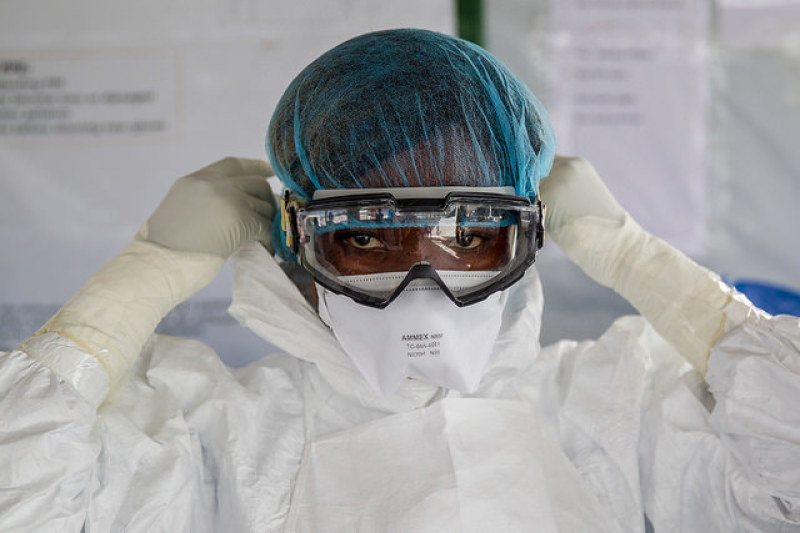

Liberia is declared free of the Ebola virus and the WHO hopes to declared West Africa free of the virus by the end of June.
Last Thursday, the Emory University health center discovered that the Ebola virus disease could survive in a previously infected individual's eyes months after being cured of the virus. A 43-year old Ebola survivor was discovered to have the virus in his eyes roughly two months after being declared free of the virus.
The virus, though present in his eye, was not in the patient's tears or outer eye membrane. The absence of the Ebola virus in those areas indicates that the virus cannot be spread through casual contact, say experts at Emory. The virus can only be spread through "invasive procedures" involving the eye.
Doctors discovered the virus in the patient's eye during an evaluation at the Emory Eye Center. The patient was diagnosed with acute interior uveitis, an inflammation of the middle layer of the eye, and hypertension in one of his eyes; hypertension in the eyes may lead to glaucoma. Doctors were draining fluid from the patient's eye in order to relieve the pressure when they discovered the virus.
The recent discovery of the Ebola virus in the eye comes at a time when the world has the largest population of Ebola survivors in history. The World Health Organization announced on Saturday that the country of Liberia was free from the Ebola virus 42 days after the last confirmed case of the virus. Emory's discovery of the persistence of the Ebola virus in the eyes of survivors uncovers more implications for the thousands of Ebola survivors in West Africa and around the world.
The WHO, though "confident that Liberia has interrupted transmission," reported that it will continue to keep a medical team in the country and continue to remain on high alert for the virus. Neighboring countries Guinea and Sierra Leone have not yet been declared free of the virus.
"The government is fully aware of the need to remain on high alert and has the experience, capacity, and support from international partners to do so. WHO will maintain an enhanced staff presence in Liberia until the end of the year as the response transitions from outbreak control, to vigilance for imported cases, to the recovery of essential health services," reported the health organization.
WHO acknowledged President Sirleaf's leadership in combatting the disease. The Liberian president took decisive action against the virus and made its prevention the focus of many branches of government, said the WHO in a statement. Transparent communication between the local population and health workers was also a key factor in eliminating the disease. Education and cooperation amongst the health workers and the local population was crucial, stated the organization. Finally, the WHO stated the essential international and domestic efforts of health organizations and government. The current response plan is to liberate West Africa from the virus by the end of June of this year.


















